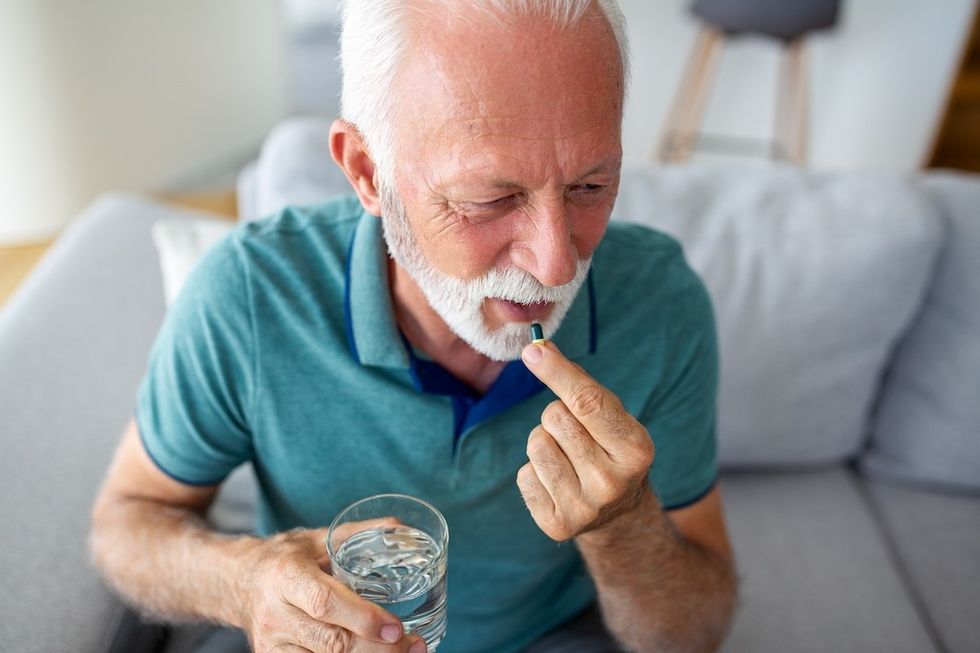According to the Centers for Disease Control and Prevention (CDC), more than 57 percent of American adults over the age of 20 have used dietary supplements within the past 30 days. However, that number increases with age, with women over 60 reporting the highest usage at 80 percent.
The fact that people tend to turn to supplements for better health as they get older may come as no surprise. Deployed strategically under the guidance of your doctor, they can help fill nutritional gaps and—if they have become depleted—restore your levels of various vitamins, minerals, amino acids, and enzymes to their optimal levels.
RELATED: 6 Supplements You Should Never Take If You’re Over 60, Doctors Say.
But which supplements, exactly, should you take as you get older? Brent Bauer, MD, director of research at the Mayo Clinic Complementary and Integrative Medicine Program, recently weighed in on this question in an interview for the Mayo Clinic’s healthy aging podcast, Aging Forward. He says that while a range of supplements might be broadly beneficial, vitamin D stands out as the number one supplement for aging adults.
“We know vitamin D plays a lot of roles. I think most of us are familiar with it as being important for bone health. And of course, as we get older, both men and women are at risk for osteoporosis or osteopenia,” explains Bauer, who is also the author of a book called Mayo Clinic Guide to Holistic Health. “But there’s also evidence that having too low of vitamin D can have a lot of negative effects, not just on bones, but possibly on immune function, maybe even muscle function. We have some interesting studies with older people who are low in vitamin D being more prone to falling.”
Bauer says that low vitamin D levels are also associated with an increased risk of cognitive decline and that supplementation can be a valuable part of a broader plan to protect cognitive health. He notes that this should also include getting plenty of exercise, following a Mediterranean diet, getting adequate sleep, staying socially connected, and doing “30 minutes of mind-body practice every day.”
“It doesn’t mean that everybody should go out and take vitamin D. It does mean that if I’m concerned about my brain, I do want to get my vitamin D level checked. And if it’s low, I want to take vitamin D to get it up to a normal level,” Bauer says.
In fact, the doctor notes that testing is a crucial step in deciding whether vitamin D is right for you. “You can’t feel if you’re high or low in vitamin D and you don’t want to just guess,” he says, adding that taking too much vitamin D is not considered beneficial.
RELATED: 16 Vitamin D Deficiency Symptoms to Watch Out For, According to Doctors.
Bauer says he focuses on vitamin D supplements in older adults because it’s one of the few nutrients that’s difficult to get from food sources. Egg yolks, mushrooms, fatty fish, yogurt, and vitamin D-fortified cereals can all help increase your levels, but none as much as getting 10 to 30 minutes of direct, mid-day sun exposure per day or taking a vitamin D supplement.
So, if you’re unsure of your own vitamin D levels, be sure to ask your doctor whether testing is right for you. By balancing your levels within the target range, you can age in better health.

